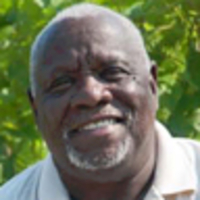Those 11 Secret Service agents in Colombia must not have heard the first rule of wrongdoing: You’d better seriously trust whomever you’re doing wrong with, since they’ve become your partner and can sink your ass.
Back in the day, when I was a recalcitrant credit-card counterfeiter (a career I pursued for over two decades), I got to know more than one or two Secret Service agents up close and personal—indeed, much more closely than I wanted to. Besides its most well-known job of guarding the president, the agency is tasked with protecting the nation’s currency; try making some fake fifties and Secret Service agents will soon be on your trail.
When gangs of credit-card counterfeiters began to ply their trade in earnest during the late 1970s, the Secret Service didn’t chase us so much as they waited for the mistake they knew we would eventually make.They knew who we were and how we did it—what they didn’t know was when and where we’d be hitting our next licks. So they waited.
Among their many attributes, agents are very methodical, and whenever you did finally slip up they’d be all over you like a cheap suit. But I give them credit for their integrity as lawmen; unlike some other federal law-enforcement agencies I could name, they didn’t make things up just to make a case on someone. They played it straight.
One time a younger agent did try to dog me out a bit. I said to him, “Hey, pal, without guys like me, you guys would have to go out and get real jobs, so show me a little respect here.” The older agent he was with snickered a bit, and the young cowboy’s attitude changed towards me appreciably. After all, I knew quite a bit more than he did about making and passing bogus credit cards. And while they well knew that I wasn’t going to give anyone else up, I could give them some pointers on the finer tricks of the trade, as long as they went to bat for me with the federal prosecutor, who was threatening me with Buck Rogers time (i.e., a release date so far into the future it might as well be in another galaxy).

The deal was, I would have someone meet them and drop off my counterfeiting equipment, and they wouldn’t arrest the person, who really was not involved in my criminal activity. They would then make sure I was only charged with the bare minimum. Since federal sentencing guidelines are based to a large degree on the amount of money involved in the crime, I kept my word and they kept theirs. That was the culture of the agency I knew—even though they were after me all the time, they were standup dudes.
None of this is intended to exculpate the Colombia agents. Even though they were not assigned to the detail that was to guard the president, they should have realized the uproar that would erupt if their actions ever became public.
While I don’t buy the notion that they were setting themselves up for blackmail (unless they were a lot dumber than I can imagine), simply because such spy scenarios usually take years to set up, and involve professionals who work in spycraft, not some hundred-dollar hookers picked up in a bar. Nonetheless, as this case proves, sometimes something can go wrong.






